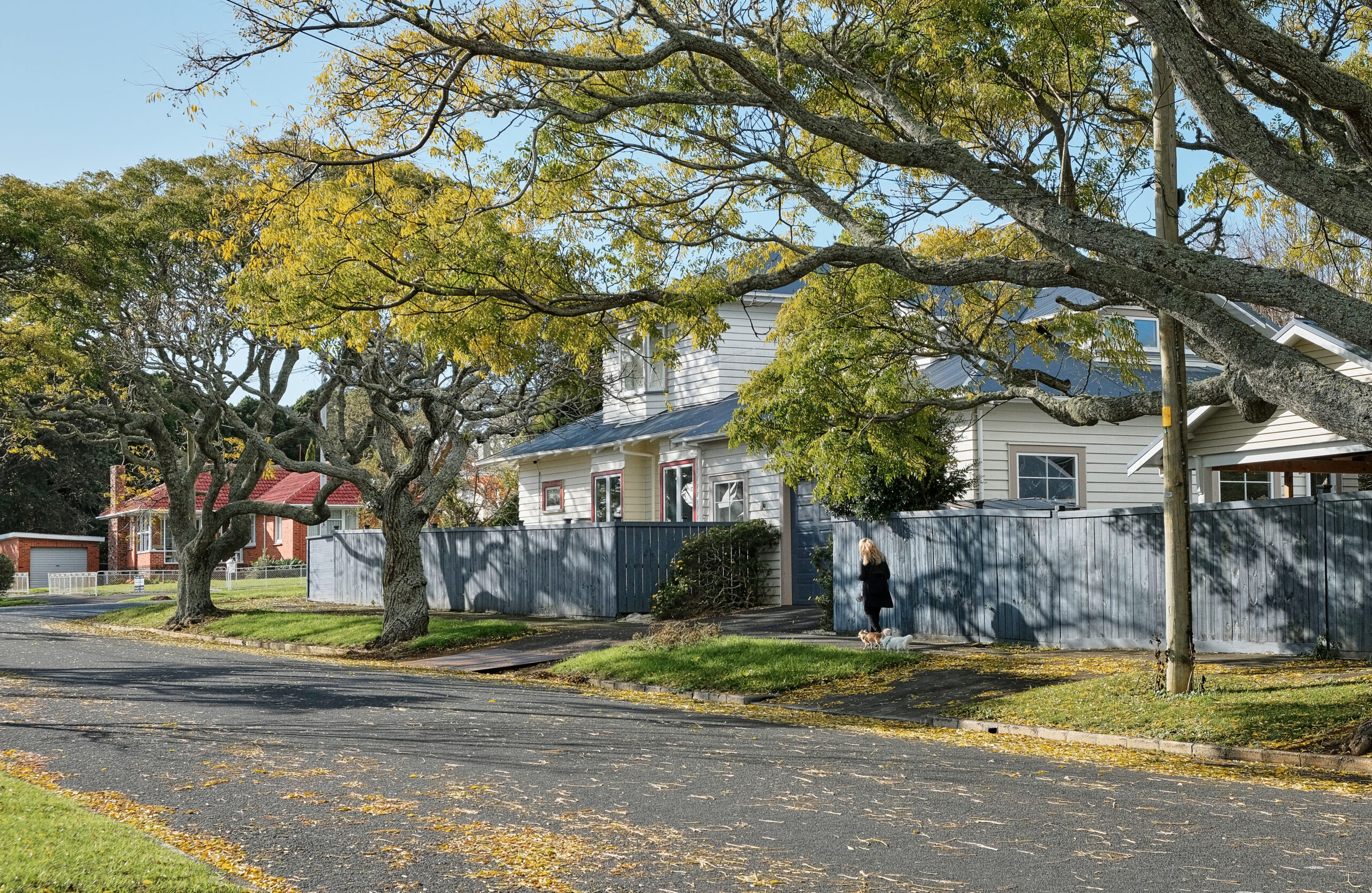A buyer’s market, but not everywhere
Last month I started up a survey of real estate agents asking their views on developments during the early days of Level 4 lockdown. The results are available here. Now, in Level 3 with Level 2 imminent, the survey has been run again, this time with the inclusion of some specific questions.
The main results show a market clearly lacking strength. But they do not back up a view of widespread weakness, and in fact in some locations, buyer strength is seen as still exceeding seller willingness, as was the case heading into this crisis. For instance, in Canterbury, only a net 2% of respondents feel that this is a buyer’s market. In Nelson and Wellington sellers, in fact, are seen as still holding the upper hand.
The survey will develop over time and in a few months allow the construction of graphs and the ability to conduct analysis in terms of divergence from averages. But for now, the weight of responses and observations volunteered by the 236 respondents shows weakness but does not support a view that prices are set for substantial declines.
Do you think this is a buyer’s market or a seller’s market?
A net 27% of respondents nationwide feel this is a buyer’s market. That is, buyers hold the upper hand. This is hardly surprising considering that the economy is in recession, and it will be interesting to see how this reading changes as we get not just a better feel in coming months for the extent of the downturn, but the recovery on the other side. Ultimately it is long-term considerations which drive the decisions of almost all property buyers and sellers.
In Auckland a net 37% of responding agents see buyers having the greater strength. In Central Otago Lakes (incl. Queenstown) a net 85% of respondents see buyers with the upper hand in negotiations. In Canterbury, this proportion is only 2%. In Nelson, a net 7% feel this is still a seller’s market and in Wellington, a net 10% feel this way.
Are property appraisal requests increasing or decreasing?
A net 19% say appraisals are decreasing. When people are considering selling their dwelling, they will usually seek an appraisal from a real estate agent – and sometimes they do it with no intention to sell and instead just to see what they might be worth. This negative result is in line with general expectations of two things – that turnover will decline, and that listings will remain in short supply.
That last point is relevant because the residential real estate market went into this crisis with a worsening shortage of listings in most parts of the country. Ahead of the 2008 Global Financial Crisis listings in April of that year were above 58,000. In March, as we headed into lockdown, they were below 19,000. Hopes which buyers might have for listings to soar and deliver them a smorgasbord of options are likely to be dashed.
Tony’s View
Are more or fewer people showing up at auctions?
This question can deliver insight into buyer strength in normal times and it will be a useful guide a few months from now. But at the moment, because of the lockdown, it cannot yield anything useful.
Are more or fewer people attending open homes?
Ditto
How do you feel prices are generally changing at the moment?
A net 17% of the 236 responding agents feel that prices are declining. That is, 8 respondents see prices as rising, 47 see them as falling, but 181 see them as flat or they do not know. That latter high number is the most interesting one in this result. It tells us that there is as yet no widespread evidence of price declines.
Do you think FOMO is in play for buyers?
Things are very much in balance here with a net 2% of the 236 respondents feeling that buyers do not have a sense that they need to rush in order to avoid missing out. 79 respondents said FOMO is there, 83 said it isn’t, and 74 were unsure or saw things as neutral.
Are you noticing more or fewer first home buyers in the market?
A small net 4% of respondents note that they are seeing more first home buyers in the market. Statistically, this is as good as balanced one might conclude. But in the context of young people seeing their KiwiSaver balances decline and experiencing a recession for probably the first time in their working lives, this result is strong.
Are you noticing more or fewer investors in the market?
And this is where we start to get to the nitty gritty of something many people do not realise when an economy is in recession. Not everyone is worse off. In fact, as a rule, the vast majority of people are unaffected by a recession. In the case of investors, while it is popular to focus on falling rents (see notes below) and increasing costs and regulations, the truth is that investor demand for property is strong and many investors see this recession as an opportunity to make a good purchase.
A net 16% of agents report that they are seeing more investors in the market. This correlates with stories from two months back of long-term focussed investors with good capital bases calling up real estate agents to express their interest in any well-priced properties which come along.
Other questions planned
From next month’s survey we will include questions around the price bracket which buyers are interested in, and enquiries from overseas.
Tony’s View
Comments submitted by respondents.
My summary of some 40 pages of comments
- There is notably continued good demand for properties in the lower priced brackets. But at the top end buyers have pulled back.
- There is very little evidence of prices declining more than 5%.
- Many buyers say they intend making a purchase but will wait to see what happens when the 12- week wage subsidy ends, then what happens when six-month mortgage deferrals end as well.
- Listings were in short supply ahead of lockdown and remain so. Vendors not needing to sell are pulling back from the market.
Some key quotes
- “Sellers are realistic and expect to get less than before covid-19 but will not slash their price and instead have indicated they will hold if need be.”
- “Very little enquiry for off-the-plan apartments.”
- “FOMO for first home buyers in popular suburbs – not so much in more expensive neighbourhoods.”
- “At the moment I am seeing bargain hunters, or wait and see buyers. Vendors are sticking to their price for now.”
- “There is still a shortage of listings right across the board as there was pre-lockdown.”
- “No one has come in yet wanting to sell due to Covid-19. One common theme coming through is that this is a better way to produce a return on cash than selling up to put into shares or the bank. So, no one is really selling because the rental market is shaky, rather keeping the asset as the other options are not better.”
- “Increased inquiry from Kiwis living overseas.”
- “Mortgage-free older people thinking about downsizing have completely put plans on the backburner, happy to wait until safer times to venture out into the public domain.”
Commercial Property
The survey focusses on residential property, but there were also some comments submitted by agents in the commercial property space which readers might find of interest.
- We have found that most Tenants and Landlords are agreeing to 50% reduction in net rent for the duration of lockdown (or the period whereby the tenant cannot access the property.
- One thing for sure is that you will see a huge dent in hospitality as a lot of them only have cash flow for 1-2 months and are usually robbing Peter to pay Paul.
- I expect significant falls in retail and office rents but less so for industrial. Yields will not alter significantly for well leased stock but vacancy risk will rise lifting yields (reducing values) for vacant and low-quality property.
- I am seeing developers/investors putting projects on hold until they know what the banks/lending position is, buyers with access to funds are looking for opportunities and wanting to make offers on properties not actively listed if they know tenants are on the move/closing up.
- More than ever investors will be looking at the quality /strength of the tenant going forward. Retail and hospitality vacancies are going to increase going forward. Office leasing opportunities on the horizon as some businesses downsize or re-evaluate their requirements. Accommodation sectors are going to languish until a trans-Tasman border arrangement progresses.
Subscribe here http://tonyalexander.nz/publications.php
This publication has been provided for general information only. Although every effort has been made to ensure this publication is accurate the contents should not be relied upon or used as a basis for entering into any products described in this publication. To the extent that any information or recommendations in this publication constitute financial advice, they do not take into account any person’s particular financial situation or goals. We strongly recommend readers seek independent legal/financial advice prior to acting in relation to any of the matters discussed in this publication. No person involved in this publication accepts any liability for any loss or damage whatsoever which may directly or indirectly result from any advice, opinion, information, representation or omission, whether negligent or otherwise, contained in this publication.


